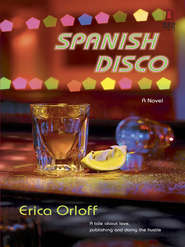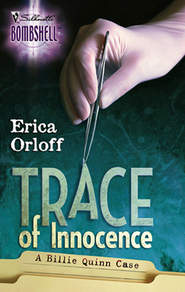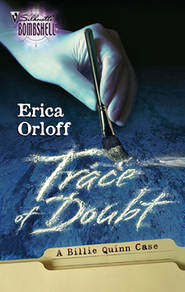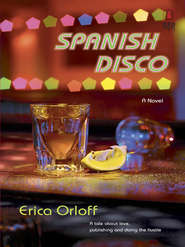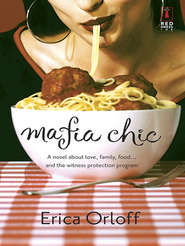По всем вопросам обращайтесь на: info@litportal.ru
(©) 2003-2024.
✖
Diary Of A Blues Goddess
Автор
Год написания книги
2018
Настройки чтения
Размер шрифта
Высота строк
Поля
He poured me a scotch, which I drink out of deference to him, but which feels like hot fire sliding down my throat. It used to make me want to retch. I don’t know if it’s an acquired taste or what, but now I don’t cringe when I drink it. Because I am always striving for a more raw blues voice, I pray before each glass that it’s doing the trick.
“To Ma Rainey and Mildred, and all the jazz and blues goddesses, including this one right here in my livin’ room, Lord.” He poked a bony finger gently into the hollow between my collarbones. We clinked and swallowed.
“Mighty fine.” He smiled.
I blinked away the tears hard liquor always brings to my eyes. “Yeah, Red. This stuff is gonna kill me.”
“Ain’t killed me yet, and I’ll be eighty my next birthday.”
“I thought you were going to be seventy-nine.”
“Truth is, I got no idea.” He shrugged his shoulders, staring into his now-empty glass. I waited patiently to see if he might say more. He was often closemouthed about all he had seen and done, even about what his given name was, certainly not Red. But sometimes, a fragment of memory, maybe even a single chord on the piano, a song, a note…would carry him away to another time, playing piano with blues legends, riding in a bus in the Deep South during segregation. During times when he might have looked out a bus window at the countryside and seen a lynched black man hanging from a tree in the distance. Billie Holiday sang about that sight in a song entitled “Strange Fruit.”
“My mama died in childbirth, and I was sent off to live with my grandma,” he said softly. “My pa was always traveling in search of work. Then Grandma died…had to be when I was maybe ten. And I struck out on my own, but I never did know for sure how old I was because there wasn’t much fuss over birthdays in our house. Always too worried about feeding me, keeping warm in the winter…stuff like that. That was a long time ago. Different times, Georgia. Of course, my grandma was a good woman. She meant nothin’ by it—we just didn’t put too much stock in birthdays.”
His face was the color of pale coffee, and his eyes were coal-black and, with age, seemed to be perpetually teary, rheumy, the whites turning a yellowish color. He wore a pair of gold wire-rimmed glasses, and his hair was now a soft silver-and-black Afro, with a bald spot the size of a small saucer on the crown of his head. What fascinated me most were his hands. His fingers were long and graceful, wrinkled, the nail beds wide and pale. The tops of his hands were crisscrossed with raised veins, and when he put them to the keys of a piano, magic happened.
He stood up and went to the shiny black baby grand—a Steinway—by the window. He said it had taken him ten years to pay it off. Closing his eyes, he sat down and rocked back and forth a few times, hearing something in his head, some melody. Then he began to play, humming along to the tune he envisioned while playing complex harmonies and bebops I could only hope to one day come up with on my own.
Each Sunday was the same; he would start playing, and I would wait. He told me you can’t rush the blues. You have to hear the blues in your soul first. Actually, feel them first. So he would play and hum, and when I felt that my voice could be quiet no longer, I sang. Sometimes I sang old songs from the 1920s, 1930s and 1940s, sometimes newer arrangements, maybe some Diana Krall or Norah Jones. Sometimes I would just scat, which means singing nonsense syllables in a way that imitates a trumpet or maybe a tenor sax. With Red, I sang from deep inside, the place that was just instrument and soul. The place I shared with no one. Not even Maggie or Dominique. Most definitely not with Gary or Jack. Sometimes Tony, I guess. But only if we were both drunk. We all have that space. Maybe for some it comes out in prayer; for me it comes from my song.
I started singing, but Red stopped me, sighing with frustration.
“Dig deeper. You call that the blues?”
I gritted my teeth. He never questioned my voice. I hit every note. I came in on the right beat. I got the tempo. He questioned my soul.
“Red…I’m singing the song as best I can.”
“I heard better blues from a goddamn alley cat.”
I exhaled loudly. He started in on the piano. Again, I sang. I shut my eyes and tried to get lost in the song. Soon I realized I was singing without the piano. He had abruptly lifted his hands from the keys.
“Georgia…you got your mind someplace else. Now when I say go to that place, you got to go there! Think why you sing the blues. Why? To sing to some roomful of fancy-assed people? No, you sing the blues ’cause you got the blues. Now sing ’em right or go on home today.”
Again, he moved his fingers on the keys, his feet on the piano’s pedals. I tried again. He’d made me angry. Sometimes I think he does it on purpose. But sure enough, with the anger came the blues.
That Sunday, I sang of a man lost, then found. I sang of mothers gone forever…for both Red and me. An hour went by while he and I made music, while we shared something that others only felt in a place of worship, if they were lucky. I sang in a way that was raw and naked and sacred. When we were done—determined by some indefinable moment when we both sensed we were finished—Red stopped playing and came over to me. I was sweating and spent. Where had that voice come from?
“Sweetheart…you are gettin’ it. You sing from that same spot each time, and you will be a blues goddess like her.” He nodded toward a poster of Bessie Smith.
I looked away. “I’m not sure where that came from. I can’t find it every time, Red. That’s what made her great and me…me.” I still mentally pictured me rolling off a baby grand piano.
He shook his head.
“The blues and jazz are just a part of you. When you come to believe that, your life will change, Georgia.”
He offered me a glass of water. “So how’s your nana?”
“Fine, Red. You should come by and pay her a visit. It’s Sunday. Why don’t you come to dinner tonight? She’s been asking after you.”
We played this game every Sunday. He was, of course, always invited to Sunday supper. I had introduced him to my grandmother shortly after I started singing with Red. Tony and I dragged Nan to a club to hear Red play with a trio. Nan loved the music, and I think she’s grown pretty fond of the man, too. Red played along with me, looking pleased at the invite. “I’d like that very much, sugar. What time shall I call on your nan?”
“You know we eat at eight o’clock. Don’t play too hard to get with me.” I winked and set my glass down. He walked me to the door, and I spontaneously kissed him goodbye on the cheek. I started down the little path to the sidewalk. He called out to me.
“Georgia?”
“Yes, Red?” I turned around.
“I think today your mama and my grandma were sittin’ up in heaven together clappin’ their hands.”
“Thanks, Red,” I whispered, and started toward the Heartbreak Hotel, the New Orleans humidity pressing in on me and making me feel claustrophobic.
chapter
6
W alking home from Red’s, I thought back to high school, when I was the helpless victim of a mother who believed fashion can be bought at places with bright fluorescent lights, wide aisles and endless rows of sales racks—much of it polyester-laden. While the princesses and prom queens of my high school wore designer jeans and carried purses with labels on the outside tipping off others to their two-hundred-and-fifty-dollar price tag, I was relegated to wearing no-name jeans and no-name sneakers, and slinging my shiny pink lip gloss in a worn-out denim purse. My mother refused to believe this mattered in the social feeding frenzy that is high school.
“Georgia, who cares what you wear? It’s what’s inside that counts,” she’d tell me, while she calmly folded socks or cooked her tuna casserole. Easy for her to say. Mom lived in a Carol Brady bubble. She didn’t have to sit in lunchroom no-man’s-land, with only Damon for company. My mother didn’t have to face down Casanova Jones in social studies as he undressed me with his eyes and flirted shamelessly, while I felt hopelessly clumsy, embarrassed by a chest that had unexpectedly grown out of control, as far as I was concerned. Damon and I did our stupid “We must, we must, we must improve our busts” exercises. But I guess my body took that mantra too much to heart. As a woman’s body replaced my baby one, as I developed into this curvaceous 1960s Playboy ideal when the rage was waiflike, I felt even more like an outsider.
My mother, on the other hand, lived her life like a television show. She bought the perfect laundry detergent for the whitest whites and the brightest colors. She whipped up meals she meticulously cut from the back of Campbell’s soup can labels and mounted on recipe cards. She knew one hundred and one ways to prepare Jell-O. She entered bake-offs. She ironed my underwear. She made every one of my childhood Halloween costumes, including a lobster complete with giant claws the year I was obsessed with crustaceans. In short, she was the picture-perfect mother, right down to her hair, which she had washed and set every Friday afternoon at the beauty salon. All she wanted was the perfect daughter. What she got was me.
I pierced my ears five times before I was thirteen, doing them at home with a cork, a needle and Damon’s pep talk to steady my shaking hand. I was hell-bent on being a singer, living my life in rebellion, being like Nan. My father was a jazzman; he played the bass, and from what I remembered of his playing, he was very talented. He was also an alcoholic. Sundays were spent tiptoeing around the house while he slept off his hangovers. Mom pretended he was just “tired.”
I adored him anyway.
Dad taught me how to “phrase” a song by playing endless records, he and I together in the den, the stereo spinning old 45s and 78s and ancient albums with dust all over them. He never seemed happy to me, except when we were playing music—especially Gene Krupa and Jess Stacy, Duke Ellington and Etta James.
He left my mother and me when one of his old musician pals came to New Orleans with a moderately successful jazz quartet, in need of a new bassist. He departed, first for the Chicago blues scene, and then for the Blue Note in New York City, with the Buster Keys Quartet, promising to return home “soon,” and sending money along the way. He wrote me postcards, which I still have in an old shoe box in my room. He was the only person who made me feel beautiful:
Angel, I’m doin’ fine in NYC. When you come visit, we’ll go to the Empire State Building and touch the sky.
Stay beautiful and keep on singing,
Love, Your Father,
Dad
He signed each card that way. He was a dreamer who believed we could touch the sky and talk to God. We could speak to heaven and listen for ghosts in the attic. He was everything imaginative. He was the blues. He was the music. He was everything my mother wasn’t.
But after a while, both the postcards and the money stopped.
My mother’s reaction to this wasn’t anger or rage, hurt or tears of abandonment. Instead, she focused all her energies on creating this fantasy of perfection—and making sure I didn’t become a singer. That I didn’t abandon her, too. And my reaction to her reaction was to try my hardest to infuriate her.
My father had left behind his blues record collection, which was enormous and still lines special shelves I had built for them in my room. I played his music over and over and over again. Sometimes the same song tirelessly. I did it to feel close to him. I did it to hurt her for driving him away with her picture-perfect ways. Etta James’s “At Last” was their song. So what else would an angry adolescent do but play that song morning, noon and night. Music has always been my weapon and my refuge.
At first, I was certain Dad was going to come back. When he didn’t, the blues were already part of me. I played them, then, because they reflected how I felt about adolescence—it was like one long, angst-ridden blues song.






